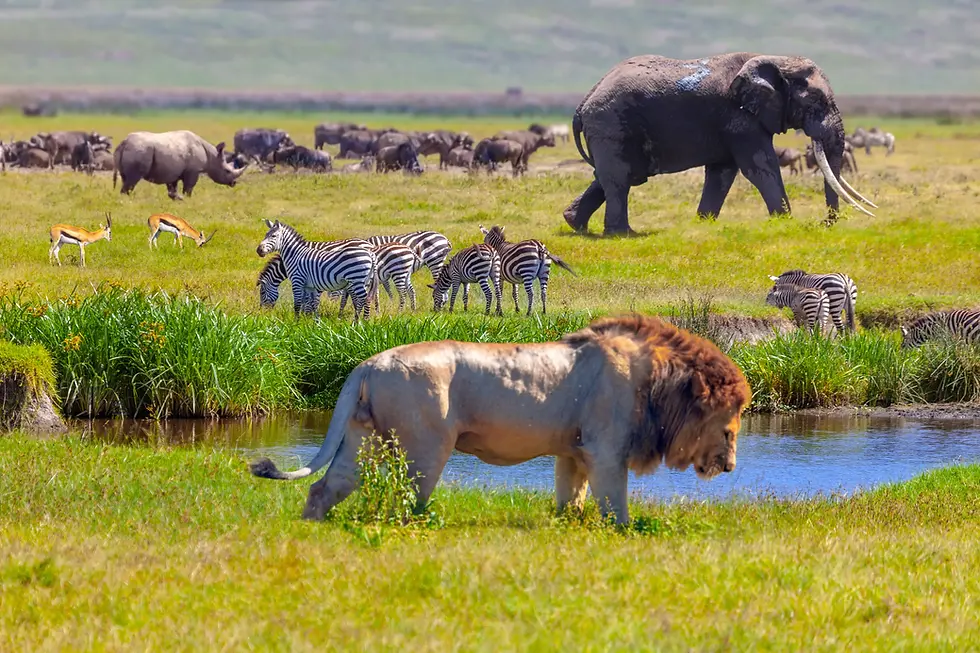Into the Deep Blue Ocean
- Julie Nguyen
- May 26, 2025
- 2 min read
Whenever the term “Ocean” is said, most individuals' minds drift towards the famous regions, known as the Atlantic Ocean or the Pacific Ocean. However, the ocean holds countless marine ecosystems beneath its surface, where more than 80% of the ocean remains unexplored or heard of. But that does not impact our knowledge of the varying effects that marine life has on both humans and the climate. In the end, they’re still living beings who need just as much care and protection. Whether you know it or not, they have a vital role in reducing the greenhouse gases in the atmosphere and keeping it stable. Along with absorbing CO2, which is essential for life to take place, but also supports biodiversity.
Despite the Ocean itself, marine life faces threats daily due to the causes of human activities. These threats are endangering both ecosystems and millions of people, ranging from overfishing to plastic pollution. But, because these animals are not as aware or intuitive as humans, they don’t understand what plastic is, though it is harmful. Often, they treat plastic as a source of food, linking it to being one of the main reasons for marine life to suffer. Since plastic is non-biodegradable, the endless effects on the ocean will carry on unless we begin to take action. For this situation to ease, we will need to be aware of what these animals will face, health problems or death, due to plastic debris as a result of human activities. For us humans, something as effortless as supporting different local programs that seek to focus on ocean conservation or participating in volunteer work whose goal is to help clean the community from plastic, we can spread awareness and have a plan for the future. Even though plastic is all around us, cutting back on the consumption of plastic will make a difference.
However, overfishing is another struggle that our ocean faces, as a result of declining fish populations, which are impacting the ecosystem entirely. From changing the size of fish remaining to how they reproduce, at when they mature. This threat itself degrades ecosystems, as when too many fish are taken out of the ocean, it brings an imbalance in the food web, which leads to the loss of vulnerable species within marine life. Many of these species are on the brink of extinction due to being captured each year. To combat this, the establishment of expanding and creating marine protected areas has been put into place, and further enforcement measures of fisheries practices have been implemented. For humans, we can reduce our seafood consumption and educate others about various ocean issues. In conclusion, marine life is essential for our climate, but with threats like overfishing or pollution, we will need to take action through knowledge of ocean conservation and make choices that protect both ecosystems and life.




Comments